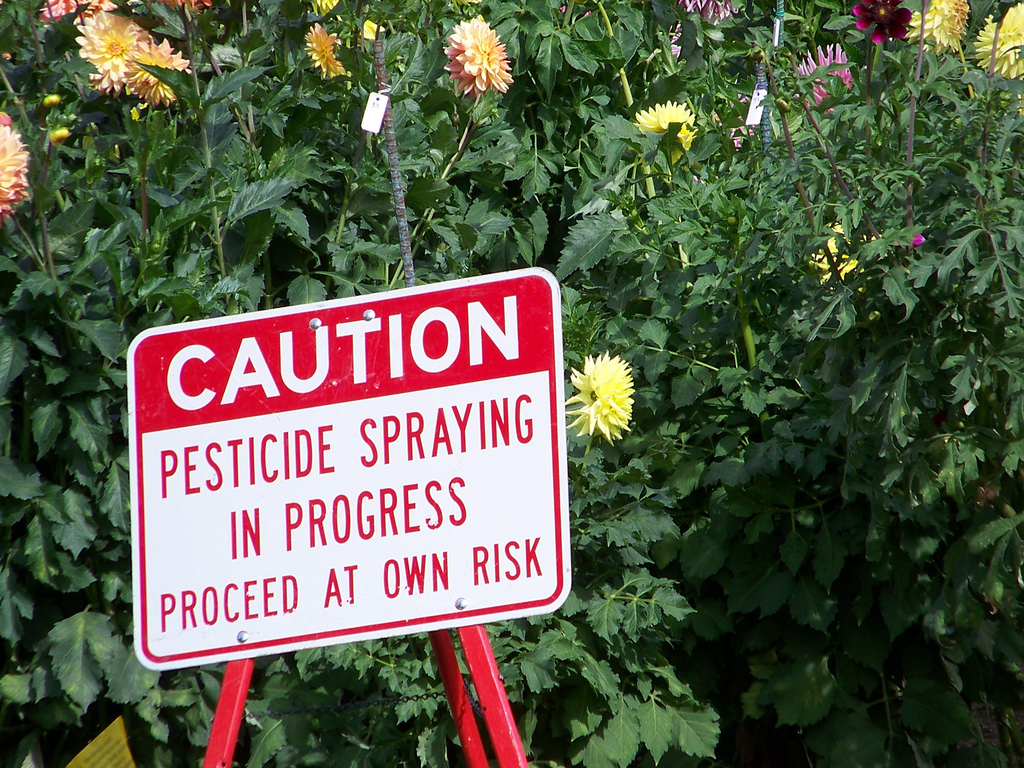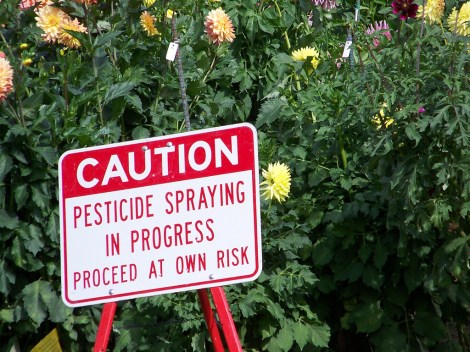You may not be at all surprised to learn that pesticides are bad for us. No, but, like, really bad.
A couple of months ago, the American Academy of Pediatrics warned about the effects of pesticides on kids. Today’s kids have grown up with a new normal of pesticide-laden food and increased food allergies (up 18 percent in the U.S. between 1997 and 2007). According to a new study, those two things might be connected. From Mother Earth News:
The study reported that high levels of dichlorophenols, a chemical used in pesticides and to chlorinate water, when found in the human body, are associated with food allergies.
“Our research shows that high levels of dichlorophenol-containing pesticides can possibly weaken food tolerance in some people, causing food allergy,” said allergist Elina Jerschow, M.D., M.Sc., ACAAI fellow and lead study author. “This chemical is commonly found in pesticides used by farmers and consumer insect and weed control products, as well as tap water …
“Previous studies have shown that both food allergies and environmental pollution are increasing in the United States,” said Dr. Jerschow. “The results of our study suggest these two trends might be linked, and that increased use of pesticides and other chemicals is associated with a higher prevalence of food allergies.”
Eat all the organic apples you want, but there’s no escaping pesticides. The New York Times’ Mark Bittman had some strong words about that this week:
[T]he most striking non-event of the last year — decade, generation — is how asleep at the wheel we have all been regarding pesticides. Because every human tested is found to have pesticides in his or her body fat. And because pesticides are found in nearly every stream in the United States, over 90 percent of wells, and — in urban and agricultural areas — over half the groundwater. So Department of Agriculture data show that the average American is exposed to 10 or more pesticides every day, via diet and drinking water.
This shouldn’t be surprising: pesticide drift is a term used to describe the phenomenon by which almost all pesticides — 95 to 98 percent is the number I’ve seen — wind up on or in something other than their intended target. (This means, of course, that in order to be effective more pesticides must be used than would be necessary if targeting were more accurate.)
Much damage has been done, and it’s going to get worse before it gets better.
It sure is — and not just for humans. R.I.P. bees.




